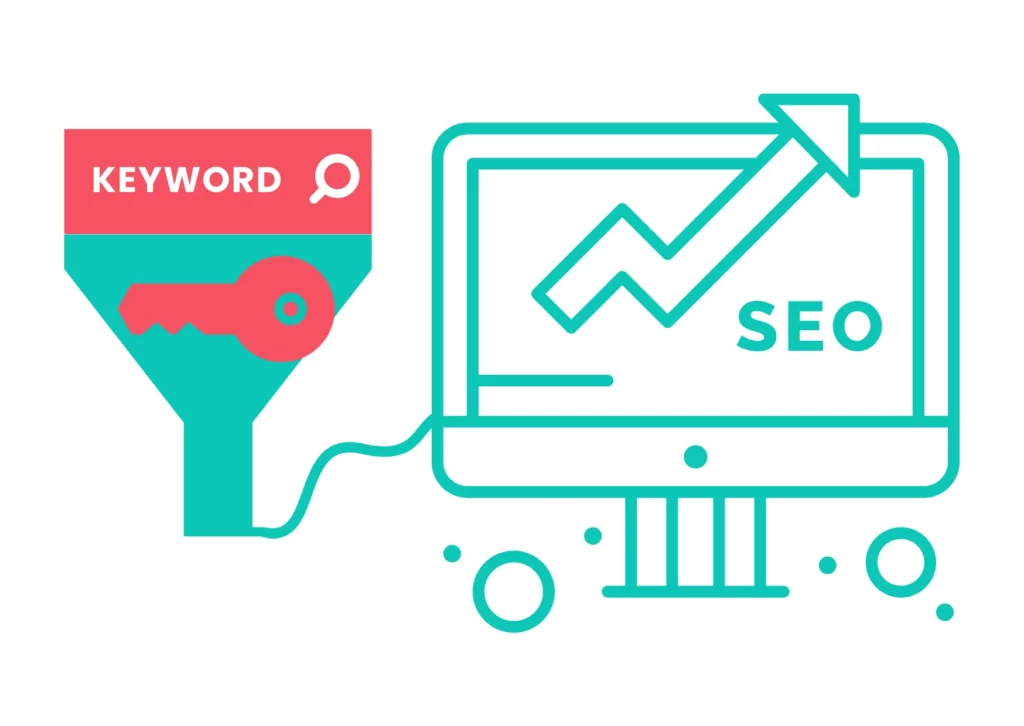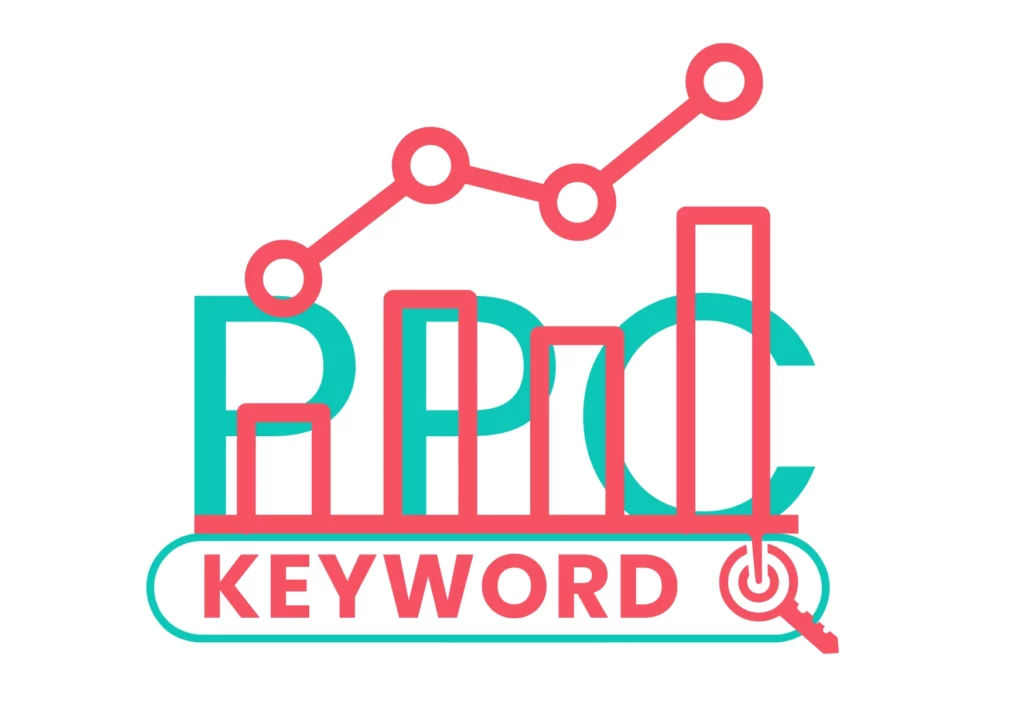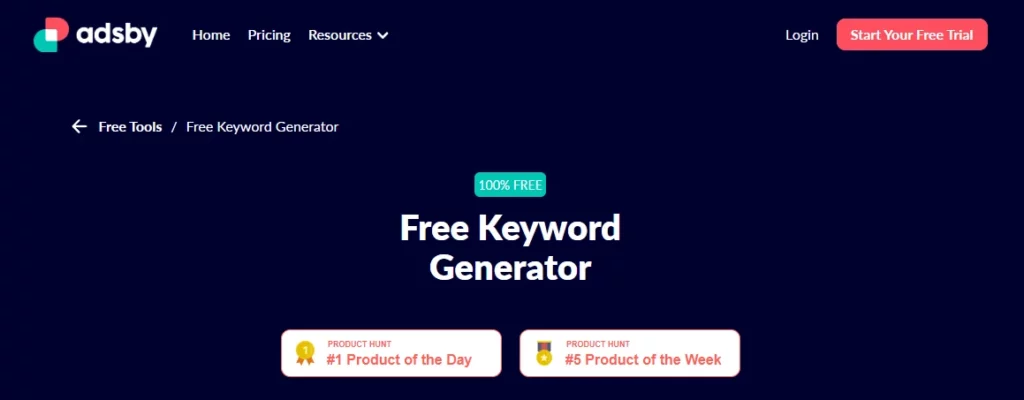
Generating the right keywords is incredibly important. Keywords are the foundation of digital marketing strategies, serving as the key element for both Search Engine Optimization (SEO) and Pay-Per-Click (PPC) campaigns. They connect what people are searching for online with the content or ads that marketers create to meet those needs.
This is where Artificial Intelligence (AI) comes in, revolutionizing the way we generate keywords. AI makes the keyword research process easier and more effective, providing insights based on data that traditional methods can’t match. With AI, marketers can discover hidden opportunities, predict trends, and create highly targeted campaigns with great accuracy.
The purpose of this blog is to explain the process of AI-driven keyword generation in a clear way. We’ll explore the tools and techniques that use AI to improve keyword research, guiding you through each step to ensure your campaigns are not only successful but also supreme. Whether you’re an experienced marketer or just starting out, this guide will give you the knowledge to use AI effectively and boost your digital marketing efforts.
Table of contents
Why is Keyword Research Important for SEO?
Knowing how to choose the right keywords is important for your effective campaigns. It helps you attract the right visitors to your website and turn them into customers. Using AI (Artificial Intelligence) for this can make your campaigns more efficient and effective. Here’s a detailed guide to using AI for keyword generation:

Keyword research acts as a valuable tool that guides your online writing and marketing efforts. Simply put, it involves identifying what people are searching for on the internet and strategically using those terms.
Learning how to conduct keyword research is essential for any digital marketer. It helps you grasp the specific words and phrases people use when seeking information related to your topic. By understanding these keywords, you can integrate them into your content to enhance the likelihood of appearing at the top of search engine results.
Moreover, keyword research provides insights into current online trends and popular topics, enabling you to stay updated with public interests. It also facilitates differentiation from competitors by uncovering unique ideas or less-explored subjects.
The Importance of Keyword Research in SEO
1. Discover Search Trends
Keyword research provides valuable insights into what people are searching for online. This information is crucial as it informs content creators whether their ideas align with popular search queries. Focusing on keywords actively used by your audience is essential rather than assuming what they might search for.
2. Understand Competition
Keyword research offers a clear view of the competitive landscape by identifying which domains already rank for specific keywords. This insight helps SEOs understand how hard it is to rank for a specific keyword on search engines such as Google.
3. Identify Low Competition Opportunities
By conducting thorough keyword research, opportunities with lower competition can be unearthed. Targeting these keywords increases the chances of attracting organic traffic to your website. Conversely, it also highlights keywords dominated by established domains, suggesting they may not be worth targeting.
4. Align with Search Intent
Understanding search intent through keyword research ensures that your content aligns with what users are seeking when they search for specific keywords.
5. Spark New Content Ideas
Keyword research isn’t just about optimizing existing content; it’s also a tool for generating fresh ideas. By analyzing competitor keywords and filtering by relevance and competition, marketers can uncover new topics to explore on their own blogs.
Why is Keyword Research Important for PPC?

Before we talk about why keyword research is important, let’s understand the basic role of keywords in PPC (Pay-Per-Click) advertising. Keywords are like the building blocks of your PPC campaigns. They are the specific words or phrases people type into search engines when they’re looking for things like products, services, or information. As an advertiser, your main goal is to choose the right keywords to target and create ads that match what people are searching for.
The Importance of Keyword Research in PPC Campaigns
1. Targeting Relevance
One of the main benefits of doing good keyword research is that it helps you find and focus on the most relevant keywords for your business. When your ads match the exact terms people are searching for, they’re more likely to click on them. This means better results for your advertising efforts.
2. Cost Efficiency
Effective keyword research also helps you spend your advertising budget wisely. By choosing the right keywords that fit your budget, you avoid wasting money on irrelevant or highly competitive terms. This smart approach improves your return on investment (ROI) over time.
3. Improved Quality Score
Search engines like Google use a Quality Score to rate how relevant and well-made your ads and landing pages are. Good keyword research helps you pick keywords that match your ad content and landing pages, which can raise your Quality Score. A higher Quality Score often means lower costs per click (CPC) and better ad positions.
4. Negative Keywords
Keyword research isn’t just about finding the right words to target; it’s also about avoiding the wrong ones. Negative keywords are terms you don’t want your ads to show up for. They help filter out people who aren’t likely to become customers, saving you money.
5. Long-Tail Keywords
Long-tail keywords are longer and more specific phrases that often have less competition and higher chances of leading to sales. Good keyword research helps you find these less obvious but potentially profitable keywords.
6. Ad Copy and Landing Page Relevance
Keyword research also helps you write ads and create web pages that match what people are searching for. When your ads and landing pages use the right keywords, it makes it easier for people to find what they’re looking for and convert into customers.
7. Competitive Advantage
Thorough keyword research gives you an edge over your competitors. By finding gaps in their keyword strategies or discovering unique keywords they haven’t thought of, you can attract more customers to your business.
Traditional Methods of Keyword Research
Marketers have relied on a variety of manual methods for keywords research:
- Brainstorming: Marketers and content creators gather to brainstorm potential keywords based on their industry knowledge, customer personas, and current trends. These sessions aim to generate a diverse set of keywords that reflect the language and interests of their target audience.
- Competitor Analysis: Examining competitors’ websites and content strategies provides valuable insights into which keywords are driving traffic to their sites. By analyzing competitors’ keyword usage and ranking positions, marketers can identify gaps and opportunities in their own keyword strategy.
- Google Keyword Planner and Similar Tools: Tools like Google Keyword Planner offer data on search volumes, competition levels, and related keywords. Marketers can use these insights to refine their keyword lists and prioritize terms that have the potential to attract high-quality traffic.
Challenges Associated with Manual Keyword Research
- Time-Consuming: Brainstorming and manual analysis require significant time and effort. Marketers need to invest resources in gathering, organizing, and analyzing data to ensure comprehensive relevant keywords.
- Subjectivity and Human Bias: Manual methods are susceptible to human biases and subjective interpretations. Keyword selection may be influenced by individual preferences or assumptions about audience behavior, potentially leading to less effective targeting.
- Limited Scope of Data Analysis: Without advanced analytical tools, manual methods may not provide deep insights into search trends, user intent variations, or detailed competitive analyses. This limitation can restrict marketers from fully optimizing their keyword strategies for maximum impact.
How AI Technology is Transforming Keyword Research?

Keyword research is crucial in digital marketing and has changed a lot due to artificial intelligence (AI) advancements. Before, experts mainly looked for popular keywords to boost content on Google and other search engines. Now, AI has transformed this by bringing in advanced tools using natural language processing (NLP) and machine learning.
Understanding Semantic Keyword Analysis
In the early days of SEO, tools mostly found popular keywords. People would then stuff these keywords into their content to try to rank higher on Google. The idea was that the more a keyword appeared, the better Google would like it.
Nowadays, things have changed. Technology has advanced, and now we focus more on semantic keyword analysis. This means we look beyond just matching keywords to understanding the context and reasons behind why someone is searching. As Google gets better at understanding searches, our SEO strategies need to improve too.
AI and Natural Language Processing (NLP)
This is where artificial intelligence (AI) and natural language processing (NLP) come in. These technologies are great at semantic keyword analysis because they can learn how people use language. They make the process of finding the right keywords faster and cheaper than before.
Benefits of AI-driven Semantic Keyword Analysis
Using AI for semantic keyword analysis has many benefits for SEO specialists:
- Better Accuracy in Targeting Content: AI helps us target our content more accurately by understanding how words relate to each other.
- Understanding What Users Want: AI tools show us what people really want when they search. This helps us create content that meets their needs.
- Improving Content Effectiveness: By using the right keywords naturally, content can be optimized to reach more people and keep them engaged.
Putting Strategies into Action: AI-Driven Keyword Research
With AI for keyword research can significantly enhance your ability to attract targeted traffic and improve content relevance. Here’s a comprehensive walkthrough to help you implement these strategies effectively:
1. Choose the Right AI Tool
Selecting the appropriate AI tool sets the foundation for successful keyword research. Consider these aspects when evaluating AI tools:
- Feature Set: Look for tools that offer strong features tailored to your specific needs. This includes advanced keyword analysis capabilities that provide insights into search volume, competition levels, and seasonal trends.
- User Intent Analysis: Choosing for tools that go beyond basic keyword metrics to understand user intent. Insights into why users are searching for particular keywords can guide your content strategy more effectively.
- Content Gap Identification: A good AI tool should help identify gaps in your existing content strategy by suggesting related keywords or topics where your content may be lacking.
2. Find the Best Keywords
Once you’ve chosen your AI tool, leverage its capabilities to identify high-potential keywords:
- Keyword Expansion: Use the AI tool to explore related keywords and long-tail variations based on your primary keyword. This expands your keyword pool and helps uncover niche opportunities.
- Competitiveness Assessment: Assess the competitiveness of each keyword. Balancing popularity with competition ensures you target keywords that are achievable to rank for, maximizing your SEO efforts.
- Seasonal Trends: Monitor seasonal variations in keyword popularity. AI tools can highlight trends that influence search behavior, allowing you to adjust your content strategy accordingly.
3. Understand What Users Want
Gain deep insights into user behavior and preferences using AI-driven analytics:
- Search Intent Analysis: Understand the intent behind user searches. AI tools can categorize search intent (informational, transactional, navigational) to align your content with user expectations.
- Content Personalization: Tailor your content strategy based on AI insights. Address specific pain points or interests identified through keyword analysis to enhance relevance and engagement.
- Localization: For global or regional targeting, utilize AI tools to understand localized search patterns and preferences. Adapt your keyword strategy to resonate with diverse audiences effectively.
4. Make Your Content Better
Optimize your content to maximize keyword relevance and user engagement:
- Natural Keyword Integration: Seamlessly incorporate selected keywords into your content. Focus on natural placement within titles, headings, and body text to maintain readability and avoid keyword stuffing.
- Content Quality: Prioritize high-quality content that delivers value to readers. Beyond keywords, ensure your content is informative, well-researched, and addresses the needs of your target audience.
5. Track and Improve
Monitor performance metrics to refine your strategy and achieve continuous improvement:
- Performance Monitoring: Use AI analytics to track key metrics such as traffic sources, user engagement (time on page, bounce rate), and conversion rates. This data provides actionable insights into content effectiveness.
- A/B Testing: Experiment with variations in content to optimize performance. AI tools can facilitate A/B testing of headlines, CTAs, or content formats to identify what resonates best with your audience.
- Iterative Refinement: Continuously refine your keyword strategy based on data-driven insights. Adjust content based on user feedback, evolving search trends, and competitive analysis to maintain relevance and visibility.
By following these steps, leveraging AI for keyword research and content optimization becomes a strategic advantage. It not only streamlines the process but also empowers you to create targeted, high-performing content that drives organic traffic and engagement over time.
Meet Adsby’s AI Keyword Generator

Adsby’s Free Keyword Generator is designed to make keyword research simple and effective. By using advanced AI, it offers a smooth experience that saves time and boosts the performance of your campaigns.
Key Features
- Automated Keyword Suggestions: The generator provides intelligent keyword suggestions based on your needs. No more guessing or manual searching—just smart, relevant keywords ready for you.
- Competitive Insights: Get an edge over your competitors with detailed analysis. Understand their strategies, find out their best keywords, and discover ways to outsmart them.
- Real-Time Updates: Keep up with the world of SEO. Adsby’s AI Keyword Generator gives you real-time updates, so your keyword strategy is always up-to-date with the latest trends and search behaviors.
Benefits
- Saves Time: Doing keyword research by hand can take a lot of time. With Adsby’s AI Keyword Generator, you can cut down the time spent on this task, freeing you up to focus on other important parts of your campaign.
- Improves Campaign Performance: Good keyword research is key to a successful marketing campaign. Adsby’s AI Keyword Generator provides accurate and relevant keywords, improving the performance of your ads and leading to better results and a higher return on investment (ROI).
- Provides Actionable Insights: This tool gives you more than just keywords. It offers useful insights that help you make smart decisions. From understanding market trends to finding new opportunities, Adsby’s AI Keyword Generator gives you the information you need to optimize your campaigns.
Conclusion
To sum up, using AI for keyword generation brings incredible benefits to digital marketing today. It helps uncover specific keywords, refines targeting strategies, and provides actionable insights that improve campaign effectiveness. By automating complex tasks and predicting trends, AI not only saves time but also boosts the precision of your marketing efforts, ensuring you get the most out of your investments.
Throughout this guide, we’ve walked through how to integrate AI into your keyword research step-by-step. From understanding your audience better to optimizing your content for search engines, AI allows marketers to stay agile in a fast-changing digital world.